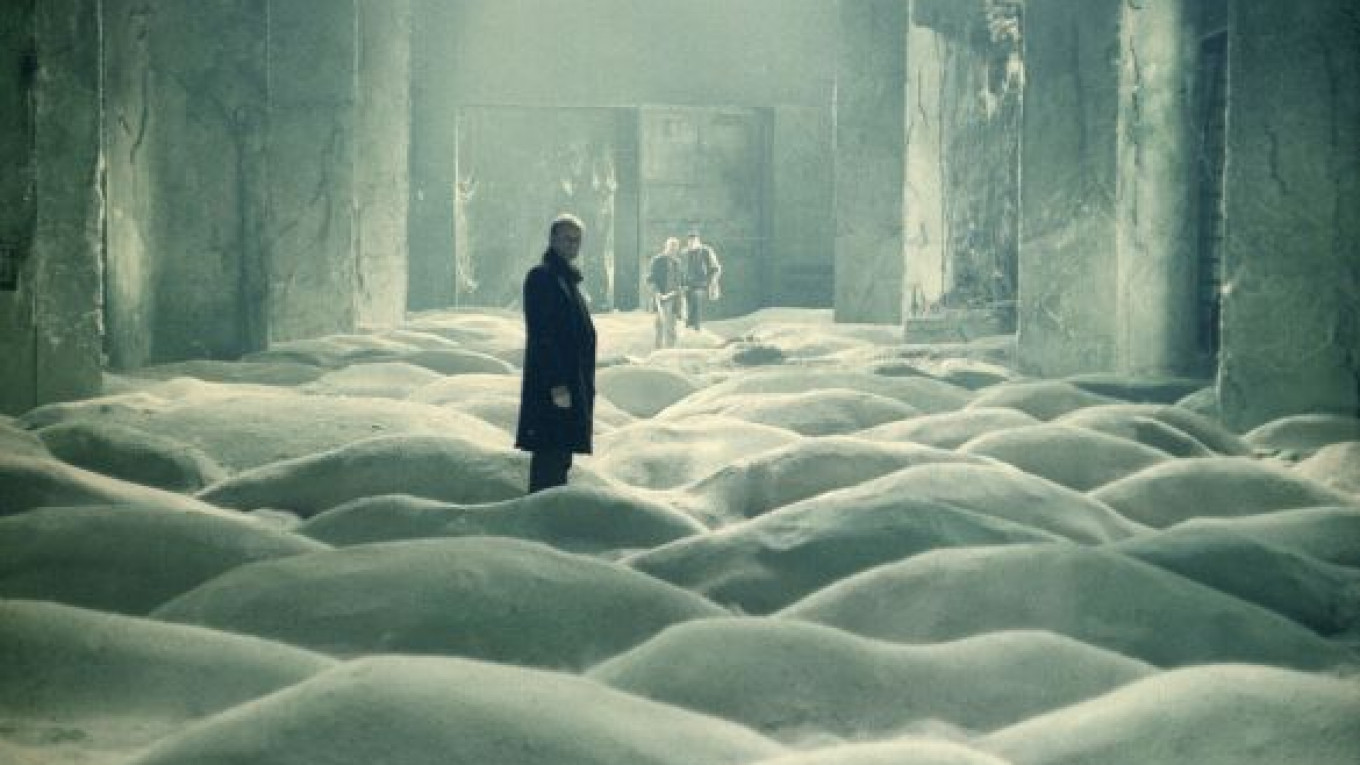Some 250 kilometer northeast of Moscow in the Ivanovo region, the seventh annual international “Zerkalo” (Mirror) film festival is taking place, across six cities: Pleso, Ivanovo, Yuryevets, Kineshma, Rodniki and Shuya.
This year, the festival, dubbed by some as the “Russian Cannes” and named after one of legendary director Andrei Tarkovsky’s films, has overseen the opening of the archives of the great filmmaker himself.
Tarkovsky’s archive was bought at London’s Sotheby’s auction house for about $2.3 million in November last year by a collective of Russian sponsors including former Finance Minister Alexei Kudrin. There had been fierce competition for the documents, including from the likes of Danish filmmaker Lars Von Trier.
Some 600 of the renowned film director’s diaries, audio recordings, sketches and photographs from the last 20 years of his life, about 36 kilograms of material, were subsequently returned to Russia.
The works included his handwritten daily diary and the director’s letter to Brezhnev, in which he pleaded with the Soviet leader about his concern over “the fate of Russian cinema,” according to Vesti.
There are plans in place to digitalize the collection and open the files to the public, which all of the sponsors involved in the archive’s acquisition have expressed a wish for.
The director’s sister, Marina Tarkovsky, was in attendance at the exhibition’s opening, as was Tarkovsky scholar Evgeny Tsymbal.
The festival was established in 2007 to mark the 75th anniversary of his birth.
Tarkovsky, who died in 1986, was widely renowned for “Solaris” and “Stalker,” a broad adaptation of Arkady and Boris Strugatsky’s “Roadside Picnic.”
? Tarkovsky also achieved worldwide fame with “Mirror,” “Stalker” and “Andrei Rublev,” which all featured in a 2012 British Film Institute’s “Top 50 Films of all Time” list.
An international jury will select the best picture in the 2013 festival, acknowledging their rights to be recognized as an “heir” of Tarkovsky.
Directors from Austria, Germany, Belgium, Mexico, China, Eastern Europe and Russia have gathered together to show and watch the films of their fellow filmmaking masters.
Nominees include Bulgarian director Emil Hristow for “The Color of the Chameleon,” a film about a sociopathic informant who recruits unsuspecting intellectuals to spy on one another; German director Matthias Glasner’s “Mercy,” set on polar nights on the cusp of the arctic sea; and Chinese director Huang Ji’s “Egg and Stone,” a film about a 14-year-old foster child that was filmed in Ji’s southern hometown using locals as actors.
Russian animators and directors are also playing a key role, such as Arseny Gonchukov’s “1210” about a forgotten Afghan war veteran whose allowance gets unexpectedly canceled.?
For more information on the festival's program visit tarkovskyfest.com. Six of Tarkovsky's films can be viewed on Mosfilm's youtube channel youtube.com/user/mosfilm
A Message from The Moscow Times:
Dear readers,
We are facing unprecedented challenges. Russia's Prosecutor General's Office has designated The Moscow Times as an "undesirable" organization, criminalizing our work and putting our staff at risk of prosecution. This follows our earlier unjust labeling as a "foreign agent."
These actions are direct attempts to silence independent journalism in Russia. The authorities claim our work "discredits the decisions of the Russian leadership." We see things differently: we strive to provide accurate, unbiased reporting on Russia.
We, the journalists of The Moscow Times, refuse to be silenced. But to continue our work, we need your help.
Your support, no matter how small, makes a world of difference. If you can, please support us monthly starting from just $2. It's quick to set up, and every contribution makes a significant impact.
By supporting The Moscow Times, you're defending open, independent journalism in the face of repression. Thank you for standing with us.
Remind me later.


